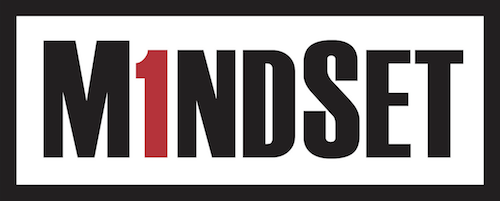I had a recent experience that has given me more pause regarding what we are losing by moving toward working remote.
We had a 60 year old, experienced and talented extended family member come to our home for a visit. This is a high-quality person, who is a bright and genuinely decent man.
When I asked him about his work, he explained that he has been working remote for the past three years. What was striking was how disconnected he seemed to be from the company who is paying his salary. He had several complaints about his supervisor who had given him a less than perfect evaluation without having previously “even talked to me about it.” He also seemed to have little knowledge of (or interest in!) the strategic direction of his company, its current overall performance, or the outlook for its future.
I then asked him to tell me about some of the really good people he gets to work with. I got only a vague response about someone he had called once in Atlanta who seemed to be pretty competent.
What we have here is a good individual who is so detached from his company that there was no sense of pride, loyalty, excitement, or passion about either the company or the other individuals who work there.
When we consider the effectiveness of a team, the talent and ability of the individual members is analogous to the bricks in the walls of the Roman Colosseum. Those bricks must be great, for there is no good substitute for character and talent. But tossing a group of talented individuals together in a room only gives you the opportunity to achieve something significant – an opportunity that will likely be squandered if you fail to attend to the mortar. It’s the mortar that creates the bond and holds everything together. The bricks are only a pile of rectangular blocks until the mortar gets involved.
In the same way that mortar binds bricks into strong and lasting structures, it is the mortar of social capital – trust, recognition of the talent of others, loyalty, open communication, a willingness to disagree, and a common commitment to excellence – that is needed to crate resilient bonds within a team.
Building high levels of social capital requires good leadership, but here I want to stress that it also requires time. Just like your investments compound over time, so does social capital; it’s formed over time and through frequent interactions. These interactions can be formal, such as scheduled and planned meetings or informal such as lunch room or coffee break conversations.
So as I reflected on my conversation with my extended family member, I thought about how different our conversation might have been if he had the opportunity to be in the office interacting with colleagues and supervisors every day – to be working as part of a team where it was the norm for support to be received and given when needed. How his response would be different if he had the opportunity to get to know his coworkers – hearing about their kids or grandkids and maybe the latest trip they were going to take.
I increasingly see remote work as running counter to the natural desire for humans to be social animals. It’s hard to trust someone that you don’t really know. It’s hard to feel loyalty to a group when you don’t have ties to members of the group. It’s hard to be proud of the people you work with when you don’t know the people you work with. It’s hard to be supportive of individuals when you don’t know when they need the support. It’s hard to give praise when you are unaware of the accomplishments of others. Trust, loyalty, pride, support, affirmation – all elements of the social capital of a team.
It is social capital that makes a team resilient. Most all teams look great when things are going well. It is when they hit hard times that we will find out how good they are. It is when challenged that they will need to rely on the robust strength of their bonds – their social capital – their mortar.
Something important happens during team meetings, spontaneous problem solving discussions, informal brainstorming sessions, and even around the water cooler and during lunch breaks. We get a sense of camaraderie, a chance to learn about the character of our coworkers, and an opportunity to learn about both the challenges that our colleagues are facing and the resources they might offer to us both at work and in our lives. We are building social capital.
We have a MindSet called, When Magic Happens. It teaches that when the members of a team or workgroup embrace two key beliefs, amazing success may well be that team’s future. The two factors are (a) grant an assumption of goodwill to colleagues who may have made a mistake, and (b) each team member be genuinely invested in the success of every other teammate. This is another wonderful example of social capital – and is something that exists not due to a speech or handbook, but can only be developed over time and through direct interactions.
Here is another cost of working remote that is often overlooked: we can be so disconnected from our colleagues that we’re not aware of the unique experience and talent they possess. On high performing teams, when challenges arise, everyone knows which players are the best available to address the issue. When staff members work remote, they may not know to call the Maytag repairman; heck, they may well not know who that is or if they even exist! This failure be able to ensure that we have the best and most capable among us focusing on key issues and challenges is another big loss.
And finally, when we are tucked away in our remote conclaves, we also sharply reduce the opportunity for our enterprise to benefit from the spontaneous combustion of great ideas – ideas that are created not by a lone individual, but are born of unplanned interactions and spur-of-the-moment communication.
Many love working remote. They value the flexibility it provides and are confident that they can perform at a high level. Others value working remote because they dislike distractions in the workplace or are perhaps more naturally introverted. (And a few like to work remote because they think it will be harder for their supervisor/company to hold them accountable!) So there is nothing wrong with trumpeting the value of having the option to work from home. But we should acknowledge the price to be paid for having employees work in isolation.
A company is nothing more than a legal entity – an entity that is populated by others who we have the opportunity to get to know, enjoy, collaborate with, and learn from. When we work in the isolation of our homes or the booth in the coffee shop, we deprive ourselves of those things. It’s a bigger loss than most initially realized – and I increasingly see a failure to acknowledge those costs as acts of willful ignorance.

Founder of MindSet, LLC.

